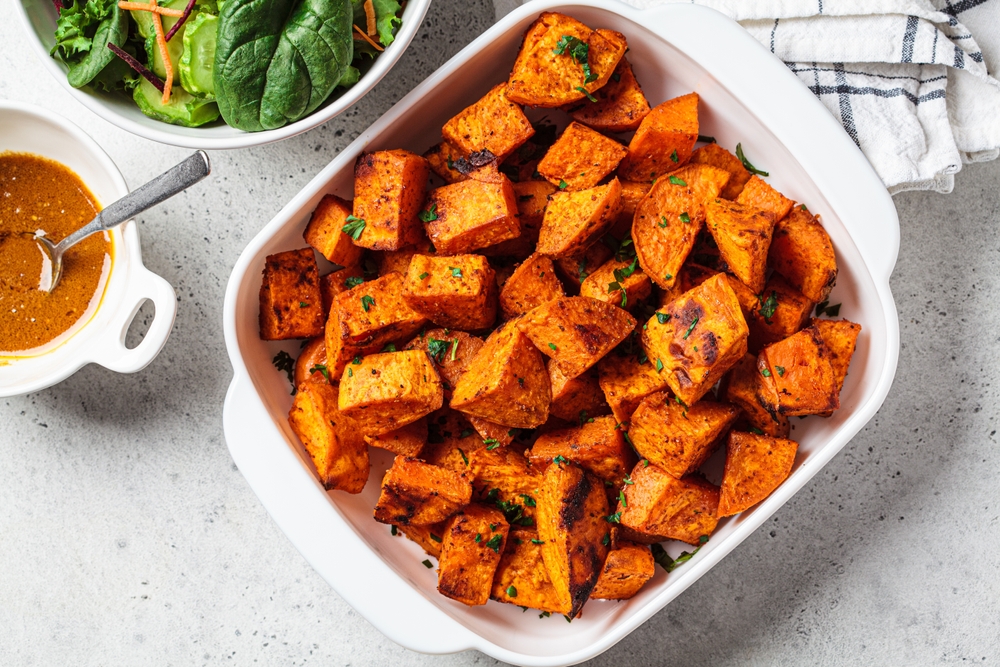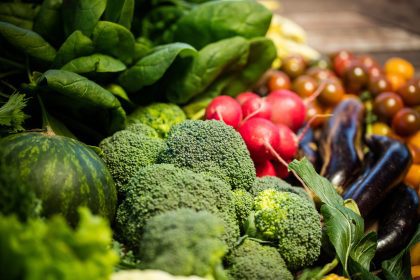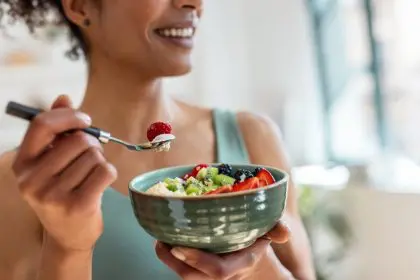That vibrant orange sweet potato sitting in your kitchen might be worth more than gold when it comes to fighting the signs of aging. While beauty companies market expensive serums promising youthful skin, one of nature’s most powerful anti-aging compounds has been hiding in plain sight all along, wrapped in an unassuming, affordable package.
Sweet potatoes have long been celebrated for their versatility and nutritional value, but their specific anti-aging properties deserve special attention. Unlike processed foods that promise vitality but deliver empty calories, this root vegetable contains a powerhouse nutrient that works from the inside out to support your body’s natural age-fighting systems.
What’s this miraculous compound? It’s beta-carotene, the plant pigment responsible for sweet potatoes’ distinctive orange hue. But beta-carotene does far more than add vibrant color to your plate. When consumed regularly, it transforms into a cellular defender that protects against multiple aspects of aging, from wrinkle formation to disease prevention and beyond.
The beta-carotene beauty connection
Sweet potatoes contain some of the highest natural concentrations of beta-carotene found in the plant kingdom. When you consume this remarkable nutrient, your body converts it to vitamin A, a critical component for cell regeneration and repair. This conversion process is precisely what makes sweet potatoes such a powerhouse for anti-aging.
Unlike topical treatments that can only reach the skin’s surface, consuming beta-carotene delivers its benefits from within. It accumulates in your skin where it serves as a natural internal sunscreen, helping to protect against UV damage, the primary cause of premature skin aging. Research suggests that regular consumption can increase your skin’s natural SPF by about 2-4 points. While this doesn’t replace conventional sunscreen, it adds an extra layer of defense against photoaging.
Beyond UV protection, beta-carotene combats oxidative stress, a major contributor to skin aging. As we age, free radicals damage cellular structures, breaking down collagen and elastin, the proteins responsible for skin’s firmness and elasticity. Beta-carotene neutralizes these free radicals before they can cause damage, helping to preserve your skin’s youthful structure.
The vitamin A derived from beta-carotene also regulates skin cell production and turnover. This means old, damaged cells are replaced more efficiently with fresh, healthy ones. The result? Smoother texture, more even tone, and a natural glow that no highlighter can truly replicate.
Perhaps most impressively, beta-carotene’s effects accumulate over time. Research has found that people who consistently consume beta-carotene-rich foods show measurably fewer fine lines and better skin elasticity than those with lower intake, regardless of other factors like genetics or sun exposure.
Beyond skin deep benefits
While glowing skin might be the most visible benefit of the beta-carotene in sweet potatoes, this nutrient works throughout your body to slow the aging process on multiple fronts.
Your eyes particularly benefit from beta-carotene consumption. Age-related macular degeneration and cataracts threaten vision as we get older, but beta-carotene helps maintain the health of the retina and lens. Studies have found that people with higher beta-carotene intake have significantly lower risk of developing these vision-robbing conditions.
Cognitive function also receives protection from this multitasking nutrient. Beta-carotene’s antioxidant properties help shield brain cells from oxidative damage that contributes to age-related cognitive decline. Some research suggests it may even play a role in reducing the risk of Alzheimer’s disease and other forms of dementia.
Your immune system tends to weaken with age, but beta-carotene helps maintain its strength. The vitamin A produced from beta-carotene is essential for healthy immune function, supporting the production and activity of white blood cells that defend against pathogens. This means fewer illnesses and faster recovery, a key component of staying youthful as you age.
Heart health, another area of concern as we get older, benefits from beta-carotene through its anti-inflammatory effects. Chronic inflammation contributes to arterial plaque buildup and stiffening of blood vessels. The antioxidant properties of beta-carotene help tamp down this inflammation, potentially reducing the risk of heart disease and stroke.
Even your DNA receives protection from the beta-carotene in sweet potatoes. Research suggests it may help prevent telomere shortening, a key marker of cellular aging. Telomeres are protective caps on your chromosomes that shorten with each cell division. Beta-carotene’s antioxidant effects may help preserve telomere length, potentially extending the lifespan of your cells.
Sweet potato supremacy
While other orange foods like carrots and pumpkins also contain beta-carotene, sweet potatoes offer advantages that make them particularly effective for anti-aging purposes.
First, sweet potatoes contain an exceptionally high concentration of beta-carotene, with some varieties providing more than twice the amount found in carrots. This means you get more age-fighting benefits per serving.
Second, sweet potatoes provide the perfect nutritional partners to maximize beta-carotene absorption and utilization. They contain natural fats that help your body absorb this fat-soluble nutrient, along with vitamin C which prevents beta-carotene from oxidizing before it can do its work.
Third, sweet potatoes offer a complete anti-aging package beyond just beta-carotene. They contain anthocyanins, particularly in purple-fleshed varieties, which provide additional antioxidant protection. They’re also rich in vitamin E, another skin-loving nutrient, and contain copper, which supports collagen production.
Finally, sweet potatoes have a lower glycemic impact than white potatoes when properly prepared, especially when consumed with their skin. This matters because high blood sugar levels accelerate aging through a process called glycation, where sugar molecules attach to proteins like collagen, making them stiff and dysfunctional. By providing steady energy without dramatic blood sugar spikes, sweet potatoes help prevent this age-accelerating process.
Maximizing the anti-aging magic
How you prepare sweet potatoes significantly affects their anti-aging potential. Some cooking methods enhance beta-carotene availability, while others might diminish it.
Steaming or boiling sweet potatoes helps preserve their nutrients while softening the starchy texture. Surprisingly, moderate heat can actually increase the bioavailability of beta-carotene by breaking down plant cell walls, making it easier for your body to absorb. Just be sure not to boil them for extended periods, as water-soluble nutrients can leach into the cooking water.
Roasting sweet potatoes brings out their natural sweetness through caramelization while creating a deliciously crispy exterior. Adding a small amount of healthy fat like olive oil not only improves flavor but significantly increases beta-carotene absorption. Since beta-carotene is fat-soluble, pairing it with a bit of healthy fat is essential for your body to utilize it effectively.
Mashing provides versatility and makes sweet potatoes easy to incorporate into various dishes. When mashing, leave the skins on when possible, as they contain additional fiber and nutrients. A touch of cinnamon not only complements the flavor beautifully but adds its own anti-inflammatory benefits.
Sweet potato toast has gained popularity as a nutritious breakfast option. Simply slice sweet potatoes lengthwise into quarter-inch pieces and pop them in the toaster until tender. Top with avocado, nut butter, or eggs for a complete meal that delivers beta-carotene alongside complementary nutrients.
For those with a sweet tooth, sweet potatoes can satisfy cravings while delivering anti-aging benefits. Baked sweet potato with a sprinkle of cinnamon and a drizzle of honey makes a dessert-like treat that supports skin health rather than undermining it like conventional sweets.
Finding your sweet spot
While sweet potatoes offer impressive anti-aging benefits, more isn’t always better when it comes to beta-carotene consumption. Extremely high intake, usually from supplements rather than food sources, can actually cause a condition called carotenosis, where your skin develops an orange tint, particularly on the palms and soles.
Most nutrition experts recommend aiming for 1-2 servings of beta-carotene-rich foods daily for optimal anti-aging benefits. A medium sweet potato a few times per week fits perfectly within this guideline. This amount provides significant age-fighting advantages without any risk of overconsumption.
For the best results, pair your sweet potato with other anti-aging foods like leafy greens, berries, fatty fish, nuts, and seeds. This creates a comprehensive nutritional approach to aging well, addressing multiple pathways of cellular protection and repair.
Remember that consistency matters more than quantity when it comes to nutrition and aging. The people who show the most visible benefits from foods like sweet potatoes are those who consume them regularly over years, not those who occasionally binge on them.
Beyond the plate
The beta-carotene in sweet potatoes exemplifies a broader truth about aging well. The most effective anti-aging strategies don’t come from expensive creams or invasive procedures but from supporting your body’s natural mechanisms for repair and renewal.
By incorporating these vibrant root vegetables into your regular meal rotation, you’re not just fighting the visible signs of aging like wrinkles and uneven skin tone. You’re supporting whole-body health in ways that help you maintain energy, cognitive function, and resilience as you age.
The humble sweet potato reminds us that sometimes the most powerful health solutions are the simplest and most accessible. While the beauty industry sells complicated regimens and miracle ingredients, nature has provided effective anti-aging compounds in delicious, affordable packages all along. That’s something worth remembering next time you’re at the grocery store, passing by the sweet potatoes that might just be your skin’s best friend.















